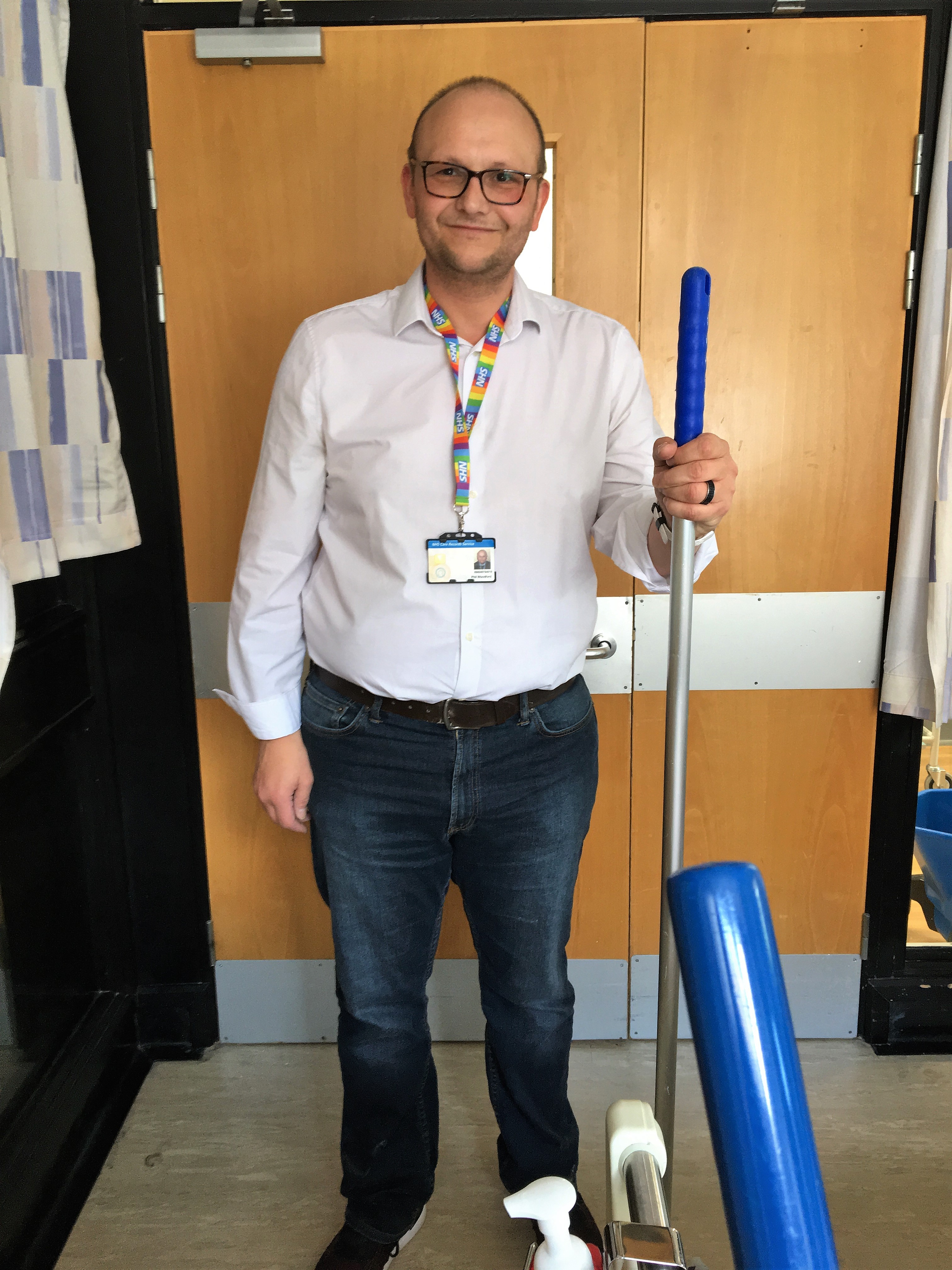 When you think of a hospital, what comes to mind?
When you think of a hospital, what comes to mind?
If you think of the complete opposite to me, this blog won’t really work so please bear with me!
I think of beds, nurses, doctors, people being operated on and, of course, patients.
I don’t immediately think of things that you can’t see but I do think about smells. Hospitals, like schools, trigger memories for many of us, as described by Proust in
Remembrance of Things Past. However, the smells we associate with hospitals and schools have mostly disappeared and our brains appear to perpetuate the myths.
It’s been an age since hospitals have smelt of bleach or illness. New cleaning methods and solutions are now fairly neutral in odour but, sadly, when I last went into a school, it still smelled of boiled cabbage, despite the catering having been subcontracted out long ago!
As part of my own development and to learn more about every area of our Integrated Care Partnership (ICP), I recently spent a day with two of my domestic colleagues in a hospital; cleaners to you and me.
So, what’s the relevance to my opening ramble? Well, the things you can’t see are all the bugs that like to thrive in hospitals.
I’m sure my scientific colleagues will be writing to me to correct all of my musings but I recently read an article about the importance of hand washing in clinical settings.
It stated that: “A recent survey of commuters' hands showed that up to 60 per cent of travellers have faecal bacteria on their fingers. Women, administrators and people who travel by bus emerged as the worst culprits.”
I think it was an American article but, even so, I would be surprised if it was very much different in England.
I have never been in a ladies’ toilet but I can attest that in my experience men appear to be poor at consistently washing their hands after visiting the lavatory. Sad to say but I don’t think that is a big shock to anybody.
I’m still learning to lift the seat up. I’m pleased to say it’s not something I see often in the hospital I work at but I’d be a liar if I said it never happened.
You can never take cleanliness for granted. Every time a person enters the hospital with bugs on their hands and fails to clean them properly, then every door handle, elevator button, clip-board, pen and so on that they touch, becomes a potential breeding ground for germs.
It is clear to me that my domestic colleagues have a crucial patient and staff safety role within our Trust but after the day I spent with them, I realised they are much more than cleaners.
I did put on an apron and swept and cleaned a patient ward too (don’t worry, I was supervised and my work was checked!)
The domestic team also has a key role in the experience of our patients. The first ward we were cleaning had mainly elderly and frail people on it and for some of them the domestic can be their first visitor of the day.
That simple smile and “good morning” meant a lot to them. Both asking how the other was, it was hard not to smile despite seeing how poorly some of them were on one of the wards.
One of the domestics explained to me how after a patient has died a family member will sometimes ask her about their loved one. I found it extremely reassuring that she was able to share some of her experience with their loved one with them.
Before I left the ward with her she asked me to meet a patient who she talks to every day. It was priceless to see how happy he was to see her - like old friends meeting up again.
When you next think about a hospital, please think about that group of people who interact with compassion every day with patients on our wards; our domestic staff.
I learned that they keep me as a staff member safe every day, whatever the weather, come rain or snow (its Cumbria so we get both!) When I come into the hospital the floors are always dry and clean and our bins are always emptied.
When I joined the NHS, MRSA and C-Diff were constantly in the headlines. Both infections can be fatal to some of our patients and while both have not been completely eradicated, we all read less and less headlines about them. However, we still need to be vigilant against nasties such as norovirus which cause vomiting and diarrhoea.
Thank you to the two ladies I met. In my opinion, they are our first line of defence in keeping patients safe.
Thank you to them for putting up with me and my inane questions all day. I really enjoyed it.
A lot has changed since my first job as a cleaner in 1987. Thank you to you all. I’m really proud of all you that you do!
Next week I am shadowing a nurse on a hospital ward and, hopefully, next month I’ll be back out in the community spending the day with a GP.

